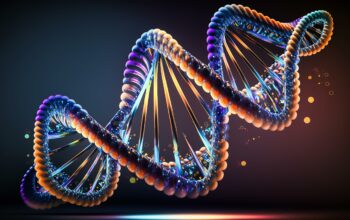Systems Biology is a multidisciplinary domain that delves into the intricate web of biological mechanisms beneath the surface of life. It operates under the presumption that organisms are not mere conglomerations of cells and genetic sequences; rather, they are remarkable systems comprised of interdependent components, analogous to a symphony orchestra where each instrument plays a vital role in producing harmonious music. As we embark on a journey through the captivating landscape of Systems Biology, we explore the key areas of study, the methodologies employed, and the broader implications of this field for our understanding of life itself.
At its core, Systems Biology is fundamentally concerned with the interactions and relationships among various biological elements, including genes, proteins, cells, and environmental factors. This approach emphasizes holistic understanding rather than reductionism, which often overlooks the complexity of biological systems. By analyzing these components as an interconnected network, Systems Biologists interpret how perturbations in one part of the system can resonate throughout the entirety. This concept is akin to a delicate balance of a teeter-totter; the disruption of one side will inevitably affect the other, illustrating the intricate interdependence that defines all living organisms.
One of the hallmark aspects of Systems Biology is the study of metabolic pathways. Metabolism embodies the processes that convert food into energy, which is essential for growth, reproduction, and maintenance of cellular functions. Systems Biologists scrutinize how metabolites are synthesized, degraded, and transformed, seeking to understand the orchestration involved in these biochemical pathways. This exploration has profound applications, from the development of novel therapeutics to modeling metabolic disorders such as diabetes. By creating detailed maps of metabolic networks, researchers can identify critical nodes of control, akin to locating the puppeteer that pulls the strings of a marionette, thereby offering insights into potential therapeutic targets.
Another focal area in Systems Biology is gene regulation. Gene expression is a highly coordinated process influenced by a plethora of factors. Systems Biologists investigate how signaling pathways and transcription factors interact to modulate gene activity in response to various stimuli. For instance, akin to a conductor guiding an orchestra, regulatory proteins ensure that genes are expressed at the right time, in the right amount, and in the appropriate cells. The study of epigenomics—a subfield that examines modifications on DNA and histones that affect gene expression without altering the underlying genetic code—enhances our comprehension of how environmental factors can imprint on the genome, leading to phenotypic diversity and adaptability.
Moreover, Systems Biology extends its reach to understanding cellular communication. Cells constantly exchange information with their neighbors through complex signaling networks that dictate cellular behavior. This interplay is foundational for processes such as tissue development, immune response, and even cancer progression. By employing high-throughput technologies and computational modeling, Systems Biologists can unravel the dialogues between cells, akin to deciphering a foreign language. This deep understanding can unveil mechanisms of diseases and facilitate the design of intervention strategies that can modulate cellular communications, potentially providing new avenues for cancer treatment and regenerative medicine.
Systems Biology also plays a pivotal role in the realm of synthetic biology. This innovative discipline aims to design and construct new biological parts and systems that do not naturally exist. By leveraging insights gleaned from Systems Biology, synthetic biologists can engineer organisms with desirable traits, such as bacteria that produce biofuels or crops with enhanced resilience to environmental stressors. This revolution is akin to a renaissance of bioengineering, where life itself becomes a canvas for human creativity, driven by a profound understanding of system dynamics.
The computational aspect of Systems Biology cannot be overstated. The vast amount of data generated through genomic sequencing, proteomics, and metabolomics necessitates sophisticated analytical tools and algorithms. Systems Biologists employ mathematical modeling and computational simulations to predict system behavior under various conditions. This integration of quantitative analysis is analogous to a navigator charting a sea of biological information, plotting routes towards innovative discoveries while accounting for the turbulent waters of complexity inherent in living systems.
Furthermore, the implications of Systems Biology extend beyond academic inquiry into the realms of medicine and environmental sustainability. Understanding the interconnectedness of biological systems can lead to groundbreaking approaches in personalized medicine, enabling therapeutic strategies tailored to an individual’s unique biological makeup. Simultaneously, insights from Systems Biology can inform strategies to combat environmental challenges, such as biodiversity loss and ecosystem degradation, by illuminating the dependencies and relationships within ecological networks.
In conclusion, Systems Biology epitomizes the pursuit of knowledge that transcends traditional boundaries. Its unique appeal lies not merely in the richness of its content but in its holistic perspective on life. By viewing biological entities through the lens of interconnected systems, we unlock a deeper appreciation for the complexity of life. In doing so, we are not only probing the mechanics of living organisms but also harnessing the potential to redefine our approaches to health, ecology, and beyond. Through this lens, every organism, whether a minuscule bacterium or a sprawling forest, is a participant in an exquisite dance of existence, intricately linked by the systems that govern life itself.








